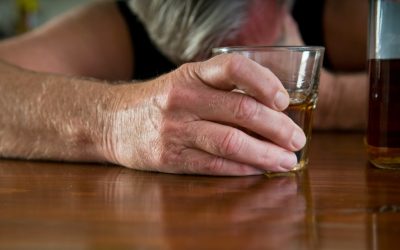Afterward, participants may be invited to share any surprising or revealing thoughts they had, if they feel comfortable doing so. Participants can share how they are practicing self-care to encourage and inspire their peers. Participants can try making gratitude lists or having open discussions on ways to find and show gratitude in daily life. PositivePsychology.com offers a wealth of therapy resources that can be used and applied in group settings.
Having a foundation for how to handle conflict can help prevent emotions or worries from taking over when conflict arises in life. Peer recovery groups, like Alcoholics Anonymous (AA) and other 12-step groups, are peer-led, non-professional options for building a support system during recovery. Clients are given a judgment-free space and are encouraged to be open and honest to facilitate recovery and healing. Do something creative and have the group come up with a piece of artwork collaboratively. They might use thumb or handprints to create a picture or use individual talents to contribute to a mixed-media piece of art.
YouTube Video: Leading Therapy Groups with Adolescents
They provide a safe environment in which members can practice newfound interpersonal skills and behaviors. Process groups are mostly unstructured with no singular topic of discussion. Theme groups are focused on support and finding commonalities between members. They tend to have more structure than process groups and focus on a single topic. Two Dreams prefers to hold process groups in order to enhance the holistic treatment experience and to help clients equip themselves with the tools needed for their own recovery.
This cognitive therapy worksheet can help clients trace the development of a particular schema and understand the subsequent reactions, sensations, and choices he or she makes. This activity can spark some great discussion and encourage positive social interaction between group members, so make sure not to cut it off too early. These substance abuse group activities questions don’t probe too deeply, but can be a good reminder of the couple’s emotional connection and relationship history. In addition, it can help them learn more about themselves and their partner. A 6-page worksheet for describing problem areas, identifying goals, and exploring what has (and has not) been helpful in the past.
Addiction Recovery Group Activities
Whatever type of group therapy you attend, the general rules will likely be the same. These rules must be followed for the safety of the group and the effectiveness of the treatment. Certain types of groups may have additional rules, but there is a core set of five rules that are essential for successful group therapy. Typically, group sessions are held once or twice a week for one or two hours per session.
- These activities help to unite group members and encourage them to work on themselves outside of the session before the next meeting.
- Group therapy is a common form of psychotherapy that entails one or more therapists facilitating and leading groups of people with a common struggle.
- Cognitive-behavioral techniques focus on identifying and changing negative thought patterns and behaviors.
- There are several mindful balloon activities, but one of the easiest is the ‘balloon hacky sack.’ To play, you only have to sit in a circle and keep the balloon from touching the ground.
- It allows participants to share something about themselves, use their creativity and imagination to come up with a convincing lie, and learn interesting things about the other group members.
This article will explore four effective substance abuse group therapy activities that can aid in the journey toward recovery. In conclusion, the power of expressive arts in group therapy is undeniable. Art therapy and music therapy allow individuals in substance abuse recovery to explore their emotions, gain insight into their recovery journey, and develop healthy coping mechanisms. These creative mediums offer a safe and supportive environment for self-expression and personal growth.
150 More Group Activities and TIPS – Judith A. Belmont
This expanded version will delve deeper into the benefits of art therapy and music therapy in substance abuse recovery. Group members are encouraged to listen actively and attentively to others, valuing their perspectives and experiences. Respectful communication helps create an atmosphere of mutual understanding and empathy, allowing individuals to feel heard and validated. It also promotes a sense of equality within the group, where everyone’s voice is valued and respected.
Some individuals may not fully commit to recovery or struggle with mixed feelings about giving up substances. Skillful facilitators must create a nonjudgmental space where participants can openly express their doubts and concerns. Balancing empathy with gentle encouragement helps participants explore their ambivalence and find their intrinsic motivations for change. Psychoeducation activities are foundational to substance abuse education within support groups. These substance abuse group activities focus on equipping participants with accurate and comprehensive information about addiction – its biological, psychological, and social underpinnings. Through presentations, discussions, and educational materials, participants gain insights into the nature of addiction, its impact on brain chemistry, and the factors that contribute to its development.
Mindful Group Activities for Adults in Recovery
Group therapy provides a cost-effective alternative to individual psychotherapy. It brings people with similar needs together in a supportive, encouraging, and validating way. Therapy provided in a group setting can be a powerful way to improve any area of emotional and mental wellbeing.
 ()
()